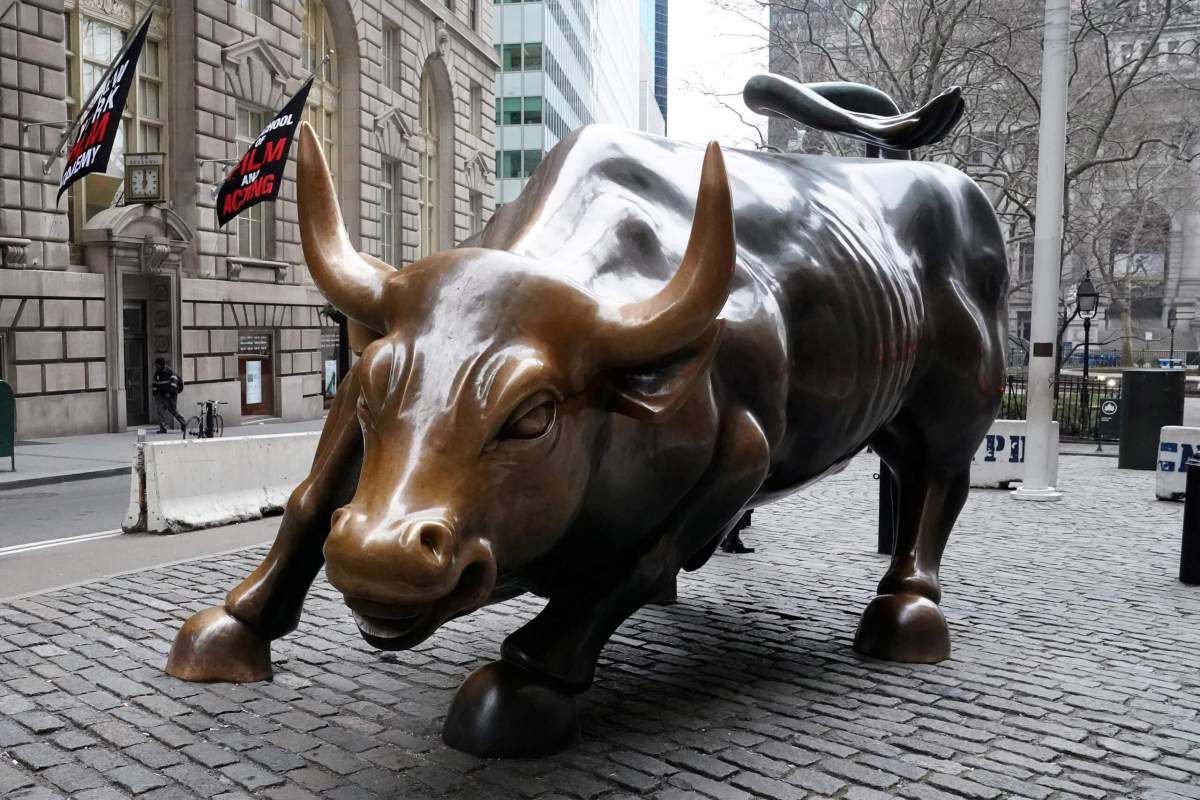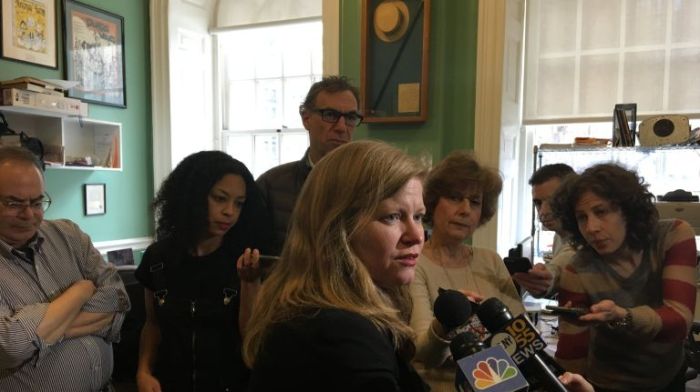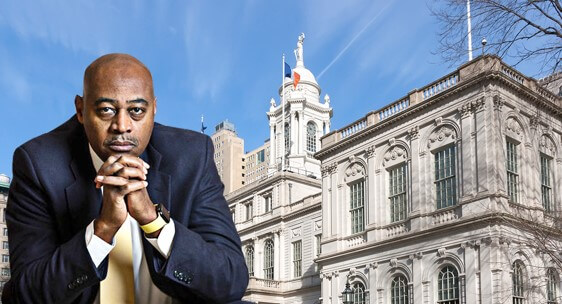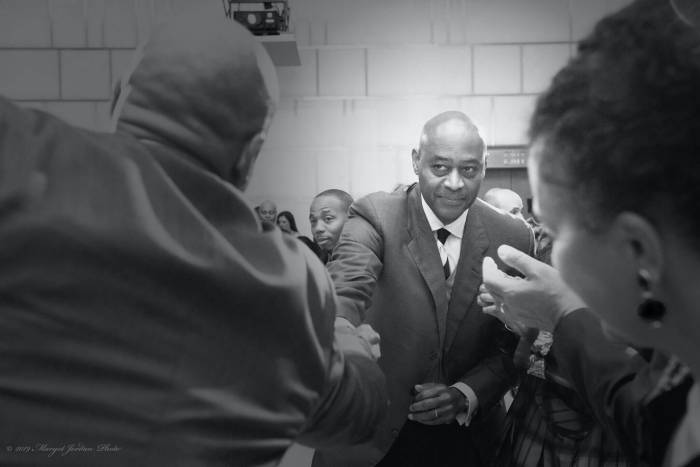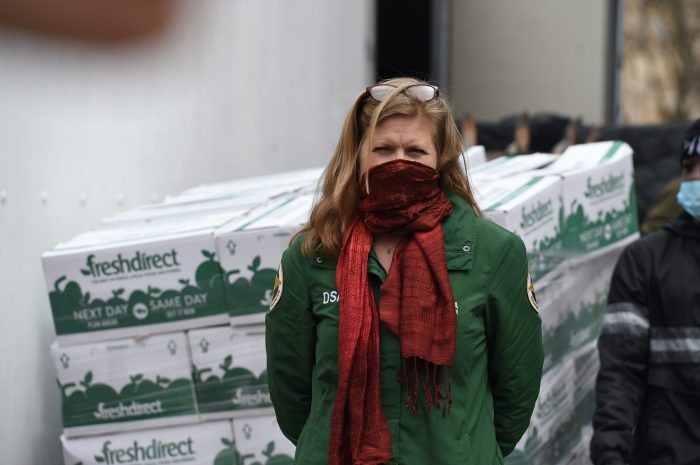Big business is marking their presence in the democratic citywide election process now more than ever, from Wall Street mayoral candidate Ray McGuire to companies getting out the call to vote.
Plenty of companies have responded to the growing civic needs of their employees and unions to provide “nonpartisan” initiatives and information for their workers, that includes pushes to register for a party affiliation before the deadline on February 14, reported the New York Times.
Bay Ridge resident Kathy Wylde is President and CEO of Partnership for New York City, the city’s leading business organization. She said that in the past, particularly for public and consumer-facing companies, there’s been a great reticence to take positions that appear political. A direction that abruptly shifted last year when companies boasted their financial and public support of the Black Lives Matter on social media and other platforms after George Floyd’s brutal death in May.
Wylde said this sense of activism had been culminating for years though.
She said instances over the last four years of former President Donald Trump’s term, like dropping out of the Paris Accords, white supremacist marches in Charlottesville, and the arguments over Deferred Action for Childhood Arrivals (DACA) recipients, had pushed employers to take a stand on more issues publicly. A fraught correlation that essentially came to head and exploded throughout 2020, right up until the last few weeks of Trump’s presidency.
“Increasingly employees are asking their employers for voter education, civic involvement, taking positions on issues, and I think it’s trying to take back democracy from the politicians and broaden the base. This is a movement that’s been going on for a few years and it was exacerbated under Trump,” said Wylde. “This is because their employees want them to take positions on some of these social and civic issues, not Republican or Democrat, but the issues that are important to their workforce.”
Wylde said, according to their 2019 survey of over 150 companies, that workers care about affordability, transportation, and voter turnout. “The response to the survey, among other things, was like, ‘Who do you trust to listen, to educate you on the issues?’ and half the group said their employers,” said Wylde.
“Divisiveness will not jumpstart our economy,” said McGuire spokesperson Lupe Todd-Medina. “In order to revitalize our city, everyone – regardless of zip code or political affiliation – has to get involved. Fresh ideas are welcome and any way to get more New Yorkers involved in the democratic process is a good thing.
As for any “pushback” over big corporations swooping in or overdevelopment, she said, McGuire has been clear that he wants to elevate the voices of the city’s small businesses which are the lifeblood of the city.
“Ray’s experience in business has taught him what businesses need to survive and grow. That is why small businesses are at the very heart of his economic plan to generate 500,000 jobs for New Yorkers in all five boroughs. Ray wants to ensure that small businesses will be able to participate in the greatest and most inclusive economic comeback in the history of New York City,” said Todd-Medina.
Wylde agreed that overall the real brick and mortar small businesses need the most help because the larger industries simply switched to remote during the pandemic.
Interestingly enough, new reports are showing that the country’s general economy is bouncing back quicker than expected. Wylde said, however, in New York City, the city government’s fiscal crisis is because of the devastating impacts to tourism, hospitality, retail, and the burden on the healthcare system.
One of the hindering factors in those sectors’ recovery is real estate.
The Real Estate Board of New York (REBNY) reported yesterday that year-to-date investment and residential sales totaled about $47 billion, which is a 46 percent drop compared to 2019. REBNY said that the real estate industry is the fundamental driver of New York City’s economy, and generated about 53 percent of the city’s total annual tax revenue in the last fiscal year.
“With this full scope of real estate activity in 2020, we can fully see the devastating economic impact the COVID pandemic has had on New York,” said REBNY President James Whelan. “Our City and State are in dire need for the new federal administration to step in with a stimulus package – including state and local aid, rent relief and unemployment benefits – that addresses our economy and helps all New Yorkers out of this crisis.”
Wylde said she hypothesizes that commercial rents are going to fall and we won’t need commercial spaces as much either.
“We’ve been talking to property owners and banks about what’s going on with commercial real estate and there are problems. Basically, a lot of landlords are negotiating rents downwards because they don’t see replacement tenants. We won’t see an impact until May when the moratorium on evictions is over and people owe a year-back rent,” said Wylde.
This story first appeared on our sister publication kingscountypolitics.com.



